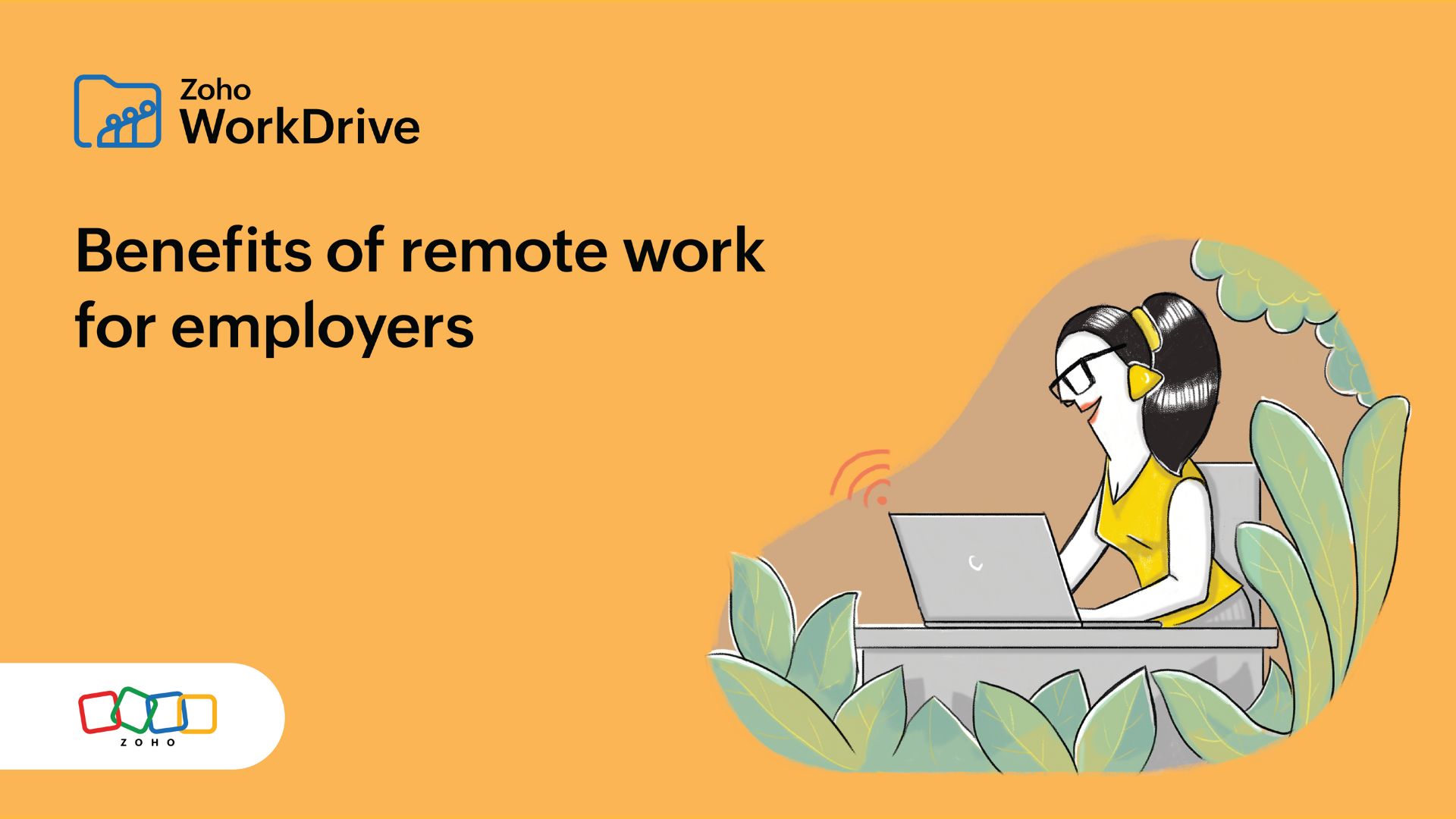- HOME
- Work Culture
- 5 Benefits of Remote Work for Employers
5 Benefits of Remote Work for Employers
- Last Updated : January 27, 2026
- 899 Views
- 4 Min Read

We are currently in the middle of a workplace revolution. Like it or not, there is going to be a fundamental shift to the way we work and do business. While change has happened more quickly because of the pandemic situation we are in now, it has started long before.
Jack Dorsey, the CEO of Twitter, stated earlier this year that Twitter would be focusing on the distributed workforce, since their concentration in San Francisco is not serving them enough. He added that San Francisco would remain the company’s headquarters and retain the majority of employees for the time being. Still, Twitter will seek to hire outside the Bay Area as a rise in remote work grows in popularity.
The Tokyo government has started testing remote working trials city-wide in 2017 to combat burnout and avoid overcrowding during the 2020 Olympics. The city performed multiple telework trials in the last three years, where 930 companies participated in their first experiment—the number rise to 3000 companies in the previous year’s test.

So, from the pandemic prevention to workforce distribution to event preparation, remote working is more than a global trend now. Ultimately, remote working allows for increased flexibility for your employees. According to this article on Inc., nine out of 10 workers who currently work remotely plan to do so for the rest of their careers.
However, having a remote workplace can significantly benefit employers, too. This makes it possible to hire the best candidates, no matter where they are, and cut down business costs spent on office space, utilities, relocation, and travel.
In this blog, we’ll take a look at five compelling benefits the employers can enjoy by having a remote workplace.
1. Remote work can lead to astounding productivity
A happier, healthier employee is a more productive employee. A Stanford study found that work-from-home employees are more productive — by nearly a full day’s worth of work!
The flexibility in remote working allows the employees to spend more time with their hobbies, friends, and family, thereby leading to a better work-life balance. Their reduced commute time adds more to their flexibility and brings stress-free hours back to their days. The result is a happier, healthier, and more motivated workforce.
2. Helps increase in workforce diversity
As mentioned already, remote working paves the way to pick the best of talents, no matter where they are located. Building a robust remote team can involve hiring people beyond geographical boundaries. Having input from a more diverse team can bring fresh new ideas to your business, which in turn can produce better results.
Moreover, it can also reduce the gender gap in your employee strength. A study from U.K. job board Jobsite found that the gender gap in IT forms could be drastically reduced by offering remote work options. 76% of female tech professionals opted for remote work as the increasingly necessary option to attract and maintain women in the tech industry.
3. Reduces workplace costs
Indeed, you would like to have your entire staff centrally placed in one office, where you can watch them work. However, it comes at a price, in the form of office space costs, office supplies, and equipment. Now, with remote working, employers can reduce these costs.
Additionally, people who work remotely are less likely to leave the company, which helps to boost the employee retention rate. This will help employers spend less time and money in recruiting and training.
4. Makes your business more eco-friendly
Embracing remote working culture is one of the most effective ways to make your business environmentally friendly. Along with saving your employees time spent waiting in traffic, you can also cut down the pollution rate due to less commuting, especially in urban areas.
According to the 2017 report by Global Workplace Analytics, people who are remotely working in the United States avoid emitting 3.6 million tons of commute-related greenhouse gases annually. This report pointed out that these numbers equal planting 91 million trees to offset the same level of emissions.
5. It’s the future of the workplace
Buffer’s 2019 report, “State Of Remote Work,” states, “Remote Work is not a trend—it is here to stay.” Out of the data they collected, 99% of respondents declared they would like to work at least some of their time in the week remotely for the rest of their careers. Furthermore, 95% said that they would recommend remote work to their friends and family members.
As working in the comfort of one’s home is currently becoming a norm, employers should ensure that they have the right tools in place for allowing them to work flexibly. For instance, WorkDrive, Zoho’s online document management platform, enables seamless, secure remote working for your virtual teams.
Conclusion
Remote working can mean increased employee productivity and cost-savings for employers. However, before becoming a fully functional remote working company, business leaders should develop a smart strategic plan to ensure they are prepared to handle remote workers. They should invest in ways to engage remote workers using effective collaborative platforms and allow them to stay connected at all times.


